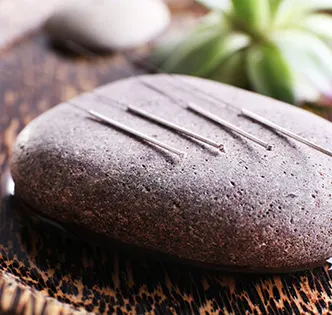

Traditional Chinese Medicine (TCM) herbal therapy is a crucial component of TCM with a rich history and profound theoretical foundation. It involves using natural plant, animal, and mineral materials, carefully combined and processed, to prevent and treat diseases, regulate the body, and maintain health.
The theoretical basis of TCM herbal therapy includes principles from TCM’s Yin-Yang and Five Elements theories, as well as the concepts of organ systems and meridians. TCM views the body as an integrated whole, where health depends on the balance of Yin and Yang and the harmony of Qi and blood. Herbal remedies aim to adjust these imbalances to achieve therapeutic effects. For instance, ginger is used to warm the middle and dispel cold, making it suitable for treating wind-cold colds; astragalus is used to boost Qi and strengthen the immune system.
Herbal formulation is central to TCM therapy. Single herbs are less commonly used; instead, combinations of herbs are employed to enhance efficacy and reduce side effects. Common formulation methods include mutual enhancement (xiang xu), mutual assistance (xiang shi), mutual antagonism (xiang wei), mutual aversion (xiang e), and mutual counteraction (xiang fan). For example, mutual enhancement refers to two herbs with similar effects working together to amplify their benefits.
The application of TCM herbal therapy is extensive, covering not only internal medicine conditions like colds, coughs, and digestive disorders but also surgery, gynecology, pediatrics, and more. Additionally, TCM herbs play a significant role in health maintenance and disease prevention. Herbs such as goji berries and red dates are commonly used in daily dietary practices to nourish the blood, enhance vitality, and improve overall well-being.
Diagnosis
Identifying Causes: TCM practitioners use methods such as observation, listening, questioning, and palpation to comprehensively understand the patient’s symptoms, constitution, lifestyle, and determine the root cause of the illness.
Symptom Analysis: Based on diagnostic results, they analyze the symptoms, assess the severity and nature of the condition, and classify the disease according to TCM theories.
Holistic Assessment: Consider the patient’s overall condition, including organ function and the balance of qi, blood, yin, and yang, to develop an appropriate treatment plan.
Formulation
Selecting Herbs: Choose suitable Chinese herbal materials based on the diagnosis. Herbs can be used in various forms, such as raw herbs, decoctions, pills, or powders, depending on the specific condition and patient constitution.
Adjusting Formulas: Formulate the herbs according to their properties, effects, and interactions. TCM emphasizes the principle of “monarch, minister, assistant, and envoy” in herbal combinations to enhance efficacy and minimize side effects.
Preparing Formulas: Prepare the selected herbs in proper proportions and methods to ensure the effectiveness and stability of the prescription.
Administration
Mode of Intake: Choose the appropriate method of administration, such as decoctions, pills, or powders, based on the nature of the formula and the patient’s condition. Follow the practitioner’s instructions regarding dosage and timing.
Monitoring Therapy: Regularly assess the effectiveness of the treatment and monitor the patient’s response and potential side effects. Adjust the formula or treatment plan as needed.
Adjusting Plans: Based on the patient’s progress and changes in their condition, modify the formula to ensure optimal therapeutic results.
Overall, TCM herbal therapy, with its unique theoretical framework and notable efficacy, remains a vital part of traditional medicine. It continues to attract increasing attention and recognition, contributing significantly to human health even in the context of modern medical advancements.
Traditional Chinese medicine (TCM) herbal treatment is characterized by its holistic approach, individualized care, and natural methods. Herbal remedies work by adjusting the body’s yin-yang balance, qi, blood, and organ functions, aiming to address the root cause of the disease rather than merely alleviating symptoms. Treatment plans are tailored to the individual’s constitution and specific condition, emphasizing personal differences. TCM herbs are often derived from natural sources, with fewer side effects, and their combinations are designed to enhance efficacy while minimizing adverse reactions. Overall, TCM herbal treatment aims to restore the body’s self-regulation and health, supported by a long history and extensive practical experience.
